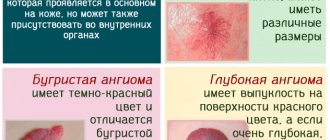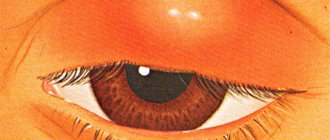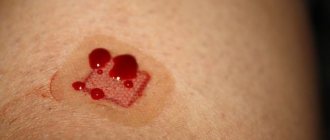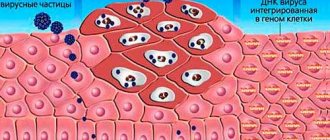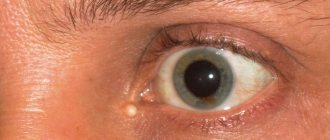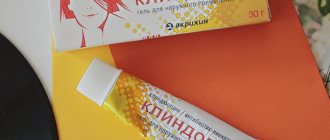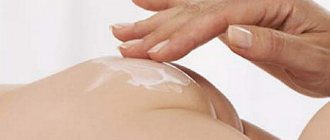Tinnitus, caused by various pathological processes, both related to the organ of hearing itself and being a symptom of pathology of other organs and systems, can be perceived by patients in different ways. Some call it rustling, while others talk about gurgling, a sound similar to that of bubbles bursting. A seemingly harmless symptom like tinnitus should not be ignored.
In addition to the fact that it causes subjective discomfort and anxiety to the patient, it can also lead to objective disorders. In particular, high-frequency noise, characteristic of lesions in the inner ear, can cause hearing loss. Timely diagnosis and treatment of the cause that caused the unpleasant symptom will help to avoid this.
Possible reasons for this sound
An unpleasant symptom in the ear, when you hear noise, crackling, an incomprehensible sound, or something is clearly bursting (like “bubbles”) provoke a variety of diseases. This is due to inflammatory processes, damage, a foreign body or sulfur plug.
The reason may also lie in disorders of the vestibular apparatus, the temporomandibular joint, and even the cardiovascular system. The sensation of something like small bubbles bursting in the ear is usually caused by influenza or secretory otitis, otosclerosis, or blockage of the eustachian tube.
Temper of tinnitus
Tinnitus can have a completely different character , so patients who come with similar problems constantly describe the illness in their own way. Someone complains of periodic “gurgling”, bubbles burst in the ear, a crackling noise is heard.
Others say that it is as if a bee is buzzing near the ear, the sound of a chainsaw is heard, and a machine is humming.
Someone hears the splash of a wave or the sound of raindrops falling on the asphalt.
Reference. Noises may be constant or occur in certain situations.
The duration of the phenomenon also varies:
- For some people, tinnitus goes away in one moment, just as it started.
- Others hear outside sounds throughout the day.
In this case, there may be no additional symptoms of irritants at all, or, on the contrary, together with extraneous sounds (a physical phenomenon that represents the propagation of mechanical vibrations in the form of elastic waves in a solid, liquid or gaseous medium), a headache begins to ache, hearing disappears completely or partially, it is felt general malaise or irritation caused by general discomfort.
When lying down, standing or sitting, the nature of the noise may change . Pulsating sounds become monotonous, quiet sounds become loud and vice versa.
Additional sensations
Sometimes, in addition to the feeling that a dozen small bubbles are bursting in the ears, additional signs of a specific disease are added. This:
- Pain;
- Ear congestion;
- Clicking, ringing and other noise;
- Sometimes there is something tickling in the ear canal.
More serious manifestations are also possible: hearing loss, systematic dizziness and deterioration of coordination. All this manifests itself in varying intensity in certain situations, for example, when flying, hiking in mountainous areas, sudden changes in body position, certain postures, chewing, swallowing, tilting the head, blowing the nose and sneezing.
Everything is individual
Before getting rid of the problem, you should consult a specialist. Situations are different, and perhaps not everything is as rosy as it may seem. If bubbles seem to burst in your ears, then treatment should be entrusted only to experienced specialists. Their task is to determine what is causing the noise. If the cause is infectious or inflammatory diseases, the doctor will prescribe a comprehensive treatment that is aimed at speedy recovery of the patient. If there is a connection with an allergic reaction, then you should pay attention to medications and diet, all of which can directly affect the internal disease.
How to do?
Before taking any measures, you should consult a specialist. Perhaps the situation is much more serious than it seems. Only a doctor can reliably determine why something is “bursting” in the ears and evaluate the accompanying symptoms.
The choice of treatment methods depends on the nature of the disease.
Since there are so many possible causes, there are no fewer treatment options. Therefore, it is extremely important to make a correct diagnosis. Experienced professionals will first check to see if your ear is inflamed or due to a cold or infection.
If fears are justified, a course of treatment with antibiotics and other possible methods is prescribed. If inflammation is caused by allergies, antihistamines are used. But if the process is complicated by chronic ear diseases, such medications are not recommended. In this case, you need to protect yourself from any contact with a possible allergen. Review your diet and lifestyle in general. In case of poisoning with drugs or the body does not accept one of them, the doctor is obliged to identify the culprit and replace it with a similar drug, without side effects.
If nothing serious was found, you can use witchcraft recipes and try instilling propolis tincture into the ear, after mixing it with vegetable oil or juice squeezed from a baked onion or yarrow. You can mix honey and viburnum juice - the effect is similar. A blockage of the Eustachian tube is possible, then inside the ear, it feels like dozens of bubbles are bursting. If it is not possible to immediately go to the doctor, then simple techniques will help. They will alleviate the symptom or get rid of it altogether. You can push the lower jaw forward and vigorously move it in different directions - it helps with ear congestion. It is also recommended to inhale, cover your mouth and nose with your palm, and then exhale through pinched nostrils - a characteristic click should occur inside the ear and the airlock will disappear.
Briefly about the airlock
Airlock is a collective term for ear discomfort and not a clinical diagnosis. There is no such disease; the term explains the unpleasant feelings in the organ of hearing. In other words, we are talking about congestion, which from time to time causes hearing impairment and dizziness.
The puzzle is suitable for both children and adults. It often goes away after the stimulus is eliminated, for example a loud sound or high atmospheric pressure. In other cases, it may be accompanied by severe inflammation, swelling, and hearing impairment.
It is important to find out the root cause of the disease and, if necessary, carry out complete healing.
“Congestion in the ear for a short period of time is not a cause for concern. Such a symptom (one of the individual signs, a particular manifestation of a disease, pathological condition or disruption of any vital process) passes in most cases without the help of others in a few hours, or at most in a day. If the discomfort persists longer and the negative signs increase, you should contact an otolaryngologist and find out the cause of the violation (An offense, an action or inaction that is contrary to the requirements of legal norms and committed by a person capable of delinquency; “Violation,” one of the first stories by Sergei Lukyanenko).”
In practice, the symptom of ear congestion is experienced by a person flying on an airplane or climbing a mountain peak. But these are not all the prerequisites for the appearance of a similar phenomenon.
What not to do
Some, not knowing the simplest safety measures or trying to treat themselves, cause irreparable harm to themselves. List of precautions:
- You should not try to remove fluid from the ear using earwax removers - it can only cause harm.
- Do not drink cold liquids.
- Avoid hypothermia of the head.
- Do not use ear and nose sprays for more than a week after opening the bottle.
- Do not apply hot compresses without first consulting your doctor. For purulent otitis media and similar forms of inflammation, this is prohibited!
Noise problem
There are many reasons that can cause cracking. You can start with simple fatigue and end with the most severe forms of various diseases. The main reasons that can cause noise in the head are identified; we need to talk about them in more detail. But first, it should be noted that self-diagnosis can only do harm in this situation: a “homemade” diagnosis will not lead to anything good.
Doctors identify the following reasons:
- Changes in the processes of perception, actualization, transmission and generalization of individual nerve impulses in one or both auditory nerves. The presented crackling sound in the head manifests itself through its monotony and in the future can cause general hearing loss. The main reasons for such negative manifestations are considered to be previous brain injuries, ongoing inflammatory processes in the ear and in case of changes in cerebral blood flow.
- Diagnosis of turbulent blood flow in a narrowed vessel. Such a noise is most often defined as pulsating, and the overall intensity may depend on blood pressure readings. In this case, the causes of a crackling sound in the head are pathological changes in the structure of blood vessels, as well as a general narrowing of the vessels carrying blood to the brain.
- Changes in the functioning of the vestibular apparatus, which is responsible for complete coordination and stable position of the body in space. A cracking sound in the head can occur due to a sudden change in body position.
- Lack of stability of the vertebrae in the cervical region. In this case, the vertebral processes can put pressure on the blood vessels. This type of noise in the head is characterized by its persistence. The patient simply begins to get used to such discomfort and puts off going to the doctor until the last minute.
- Brain hypoxia, which is caused by a lack of oxygen supply to the brain. It can also occur due to impaired cerebral circulation and possible neoplasms in the brain structures.
The factor of individual tolerance to the perception of various sounds cannot be ignored. This is based on ongoing neurosis, overwork, and stress.
The use of certain medications used in the treatment of diseases may have side effects. For example, antidepressants, cardiovascular drugs, anti-inflammatory and non-steroidal drugs. Ordinary intoxication begins, and as a result, undesirable processes begin to appear.
Associated symptoms
This symptom entails the appearance of additional sensations and disturbances.
Associated symptoms:
- Strong headache.
- Weakness of the body.
- The occurrence of ear pressure.
- Feeling stuffed up.
- The appearance of extraneous noise in the ear.
- Unpleasant sensations inside the ear canal: tickling, skin irritation.
Sometimes this disease entails symptoms such as a sharp decrease in hearing, frequent dizziness, darkening of the eyes, and loss of consciousness. These symptoms may appear in a specific situation. For example: a feeling of congestion in the ear canal occurs when climbing up long distances. And when you sneeze, you can feel a sharp click in your ear. The appearance of unpleasant sensations may depend both on the position in which a person is located and on the actions he performs. So, from a sudden change in posture, the gurgling sound in the ears may intensify.
An otolaryngologist will help you determine what exactly causes the feeling that something is squelching in your ear. He will conduct a comprehensive examination of the patient and determine exactly why this defect occurred. Treatment for this defect can be very varied. It depends on the cause of its occurrence. If the feeling as if something is gurgling in the ear is associated with diseases of the cardiovascular system, then treatment will be aimed at normalizing the condition of the heart and blood vessels.
Related and recommended questions
What to do if your ear is blocked? This morning I woke up from a squeaking sound in my left ear, and after...
I can’t hear in my left ear. My ear got blocked a couple of days ago and I still can’t hear. Dripping...
I have trouble hearing in my left ear and have a headache. A couple of days ago I noticed that my left ear was...
Shunts were removed after surgery; my left ear hurt at night. Good afternoon. The child was made...
Aku trauma Just a week ago I was listening to (as it turned out, low-quality) headphones...
When inhaling and exhaling there is severe discomfort in the ear. Good day. The second day is painful...
The left ear hears worse. I have a question about the health of my left ear, which...
Pain in the left ear A week ago, after relaxing in nature, pain appeared in the left ear,…
My left ear ache slightly. I visited ENT. On March 17, the doctor looked at me and made a diagnosis...
Perforated eardrum My father had an accident at work...
What to do if you have tinnitus
The human body is very complex. The slightest changes in the usual processes of life indicate that a certain malfunction has occurred. Sometimes the symptoms that arise do not indicate anything specific at all and it is difficult to understand the reasons for their occurrence. Quite often you can hear complaints that bubbles seem to burst in the ears.
If such symptoms occur, you need to take appropriate measures to eliminate them as soon as possible, and in order to do this, you need to understand the reasons for what is happening. It will be possible to eliminate suspicious noises only if the provoking factor is eliminated. Such problems, depending on their nature of origin, can sometimes be “cured” at home, on your own. In severe cases, hospitalization is required for more serious treatment.
It is important to realize that the sooner you pay attention to the problem, the sooner you can identify the provoking factors, the easier it will become for you. Neglected tinnitus will gradually develop into a real disease, primarily a neurological one.
Depending on the causes of what is happening, the consequences can be irreversible, ranging from hearing loss to the development of incurable chronic diseases.
If you cannot independently determine the cause of tinnitus, and you are also worried about other symptoms, you should visit an otolaryngologist as soon as possible and undergo an appropriate course of examination.
In the future, the doctor will determine the diagnosis or refer you to see other specialists: neurologist, endocrinologist, cardiologist, oncologist. At the appointment, try to describe your real sensations as clearly as possible and note additional symptoms. This will help the doctor quickly determine the diagnosis and prescribe the correct course of treatment.
Often, someone who has experienced tinnitus understands the reasons for its occurrence himself, knowing what has happened to him recently. If water gets into your ears, you need to remove it with cotton swabs, dry it with a stream of warm air, or simply hop on one leg to get the liquid out.
If you have a cold and your ears are cold, you can drop a couple of drops of the medicine directly inside the ear to warm it up:
- camphor oil;
- preparation based on boric acid;
- anti-inflammatory agent;
- antiseptic drug;
- propolis tincture diluted in vegetable oil;
- juice of baked onions;
- honey
Attention! If self-medication does not produce results within two hours, you should immediately go to the hospital. There's no point in experimenting! Moreover, you should not take any strong medications on your own, until the diagnosis is determined. Indeed, in some cases, even warming up the ear can lead to additional problems.
It is important to understand that in some cases, for example, if there is a feeling in the ear as if bubbles are bursting, and a person additionally develops a fever, a headache, nausea and loss of strength, one cannot do without doctors. If you get an infection in your ear, you can completely lose your hearing.
In cases with increased blood or eye pressure, heart failure, there may be more serious consequences, including coma. It is clear that drops cannot be used here and a more radical solution to the problem is needed.
Therefore, before you begin self-medication, find time to visit a doctor, and then, if the causes are not so dangerous, begin to eliminate the problem under the supervision of a specialist.
Medicines
Drug treatment is aimed at relieving ear discomfort and eliminating the manifestations of the underlying disease.
How to treat:
- antibiotics - Levomycetin, Ceftriaxone: prescribed for otitis media, bacterial lesions of the nasopharynx;
- ear drops – Otinum, Otipax;
- NSAIDs – Nimesulide, Diclofenac: relieve joint pain;
- vasoconstrictors – Snoop, Sanorin;
- muscle relaxants – Mydocalm, Sirdalud: eliminate muscle spasms;
- antihistamines – Suprastin, Zodak: remove swelling and allergy symptoms;
- sedative medications - Persen, Novo-passit: prescribed for stress, sleep disturbances;
- chondroprotectors – Chondroitin sulfate: promote the restoration of cartilage tissue.
Categories
AllergistAnesthesiologist-resuscitatorVenereologistGastroenterologistHematologistGeneticGynecologistHomeopathDermatologistPediatric gynecologistPediatric neurologistPediatric urologistPediatric surgeonPediatric endocrinologistNutrologistImmunologistInfectious disease specialistCardiologistCosmetologistSpeech therapistElorologistMammologistMedical lawyerNarcologistNeurologistNeurosurgeon NephrologistNutriciologistOncologistOncourologistOrthopedist-traumatologistOphthalmologistPediatricianPlastic surgeonProctologistPsychiatristPsychologistPulmonologistRheumatologistRadiologistSexologist-AndrologistDentistTherapistUrologistPharmacistPhytotherapistPhlebologistSurgeonEndocrinologist
It's all because of ear plugs
No matter how trite it sounds, gurgling in the ears can occur from ordinary ear plugs. In this case, it is all due to lack of hygiene. Few people know that cleaning ears with a cotton swab is not recommended. In the depths of the ear canal, an obstacle is created when the wax is pushed deep into the ear canal. No matter how strange it may sound, if the Eustachian tube is blocked, then it is worth doing certain exercises that normalize internal processes in the body.
They are as follows: the lower jaw moves forward, and then the direction changes and the jaw moves to the right and left. This simple exercise helps eliminate signs of congestion. You can also experiment with another exercise: close your nostrils with your fingers and draw air into your lungs, and then exhale it. This simple exercise will cause a small “click” to appear, which will cause ear congestion to disappear.
Methods for removing traffic jams
Therapeutic measures depend on the underlying cause of the disorder. The following simple steps will help you remove an airlock in your ear during an air flight or climbing a mountain peak:
- lollipop resorption;
- frequent swallowing of saliva;
- slowly exhale air through a nose pinched with your fingers;
- special earplugs.
After disembarkation, the given symptom traditionally goes away on its own, healing (by faith (as well as healing by prayer, divine healing) - a doctrine that affirms the possibility of supernatural physical healing from an illness or congenital (acquired) defect of the body) is not required.
What to do if a wax plug has formed in your ear? Rinsing with a Janet syringe will help. The procedure is carried out on an outpatient basis in a clinic in almost a few minutes. The manipulation is safe and virtually painless.
If you are sure that the presence of air in the ears is connected specifically with the accumulation of gray matter, you can carry out home rinsing. A 3% hydrogen peroxide solution and a syringe without a needle will be useful.
For a couple of days, 3-5 drops of water are instilled into the ear three times a day to soften the plug. Then the cavity is washed with clean water at room temperature using a huge syringe.
To make it easier to clean the ears of wax, special drops called cerumenolytics are used: A-Cerumen, Remo-Vax, Debrox. Use strictly as directed, no more than once a week.
Ear congestion due to otitis media and other inflammatory diseases requires special attention and special treatment. Depending on the etiology, the following are prescribed:
- systemic anti-inflammatory agents: Ibuklin, Nurofen;
- antimicrobial drops: Otipax, Otinum;
- antiseptics: Miramistin, Chlorhexidine;
- antihistamines: Claritin, Suprastin;
- medications: Ciprofloxacin, Amoxicillin.
These products are prescribed by the treating doctor. The plug disappears as the underlying disease is cured (this is a condition of the body expressed in disruption of its normal functioning, life expectancy and its ability to maintain its homeostasis).
Only a specialist can tell you how to get rid of an air plug in the ear when chemical particles and foreign objects get into the ear canal. A painstaking examination with an otoscope is required to determine the extent of the damage.
The method of treatment is selected individually depending on the situation with the ear. In some cases, transportation to the clinic and surgical intervention are required.
Hardware examination
In order to clarify the nature of the lesion in this case, the following brain studies can help:
- echoencephalography (used when a tumor or traumatic brain injury is suspected);
- Doppler ultrasound, which is based on the study of large vessels using an appropriate sound signal;
- computed tomography (allows you to study the structure of the brain in cross section);
- magnetic resonance imaging (assesses the anatomical features of the brain and the presence of pathological changes in it);
- magnetic resonance angiography;
- positron emission tomography (assesses the metabolic processes of the brain at the cellular level).
Depending on the detected pathology, a specialist may offer a variety of treatment methods. These can be both medications and physiotherapeutic procedures. In the presence of a post-traumatic hematoma or tumor, the question may be raised not only about conservative, but also surgical methods of treatment.
In what cases should you contact a specialist?
A visit to the doctor should not be postponed if, in addition to the feeling of bursting bubbles, the following factors are observed:
- Increased body temperature;
- Pain in the ear;
- Discharge from the ear;
- The symptom does not go away for more than 7 days.
Which doctor should I contact?
Long-term discomfort in the ears is a reason to contact an ENT specialist or phoniatrist; if, after examination and diagnosis, the doctor does not identify pathologies of the hearing organs, he will write a referral to a dentist, neurologist, vertebrologist, or chiropractor.


